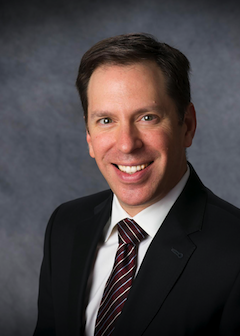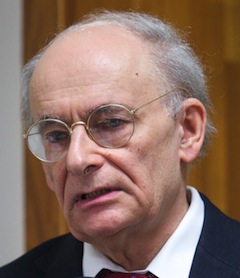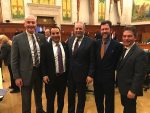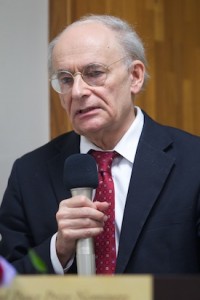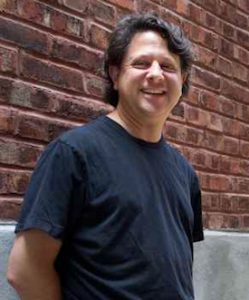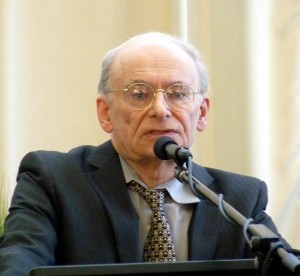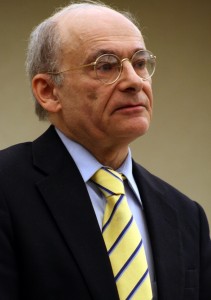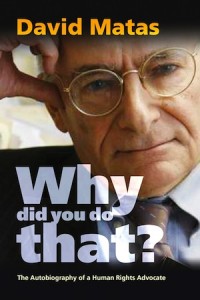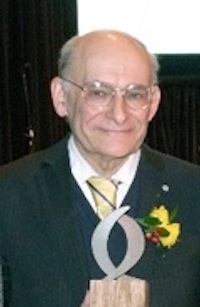There will be no charges arising from allegations that the Israel Defence Forces (IDF) has been recruiting members illegally in Canada.
The case began in 2020, when several progressive groups and individuals laid a complaint with Justice Minister David Lametti calling for an investigation and possible charges against those who recruit or encourage recruiting for the Israel Defence Forces among non-Israeli citizens in Canada.
Lametti referred the matter to the RCMP, which, on June 8, issued the following statement to the CJN: “A review was conducted. [H]owever, a criminal investigation was not initiated. The file is now concluded and the RCMP has no further comment.”
Israel’s consulate in Toronto was unavailable for comment. The country’s embassy in Ottawa did not respond to a request for comment.
The case began when the Canadian Foreign Policy Institute, Palestinian and Jewish Unity, and Just Peace Advocates presented the complaint to Lametti, alleging that recruiting by the IDF in Canada violated the Foreign Enlistment Act. The act states that any person “who, within Canada, recruits or otherwise induces any person or body of persons to enlist or to accept any commission or engagement in the armed forces of any foreign state or other armed forces operating in that state is guilty of an offence.”
The complaint focused on online ads from Israel’s consulate in Toronto, which said an IDF representative was available for personal appointments for those wishing to join the forces, not just those required to do their compulsory military service.
“Young people who wish to enlist in the IDF or anyone who has not fulfilled their obligations according to the Israeli Defence Service Law are invited to meet with him,” the ad stated, according to the complaint.
The complaint also alleged that the consulate had arranged for Israeli soldiers and veterans to appear in Jewish schools, summer camps and other venues in Canada with the goal of inducing young people to enlist.
The allegations were unfounded, said Israel’s consul-general at the time, Galit Baram.
“Israeli law dictates compulsory military service to Israeli citizens over the age of 18, whether male or female. Consequently, Israeli citizens of drafting age living abroad are required to settle their status with the Israeli authorities, through Israeli consulates around the world,” she said.
Baram called the charges an attempt to “smear” Israel.
At the time, Lametti said diplomats representing Israel in Canada “follow Canadian law.”
Included in the complaint was an open letter signed by U.S. academic Noam Chomsky, musician Roger Waters, author Yann Martel and more than 170 prominent Canadians. It was delivered to Lametti, asking him to probe recruitment for the IDF taking place in Canada.
The complaint noted that there were some 230 Canadians serving in the IDF as of 2017, and that it was “unclear” how many were recruited in ways that violated the law.
After the complaint was laid, Winnipeg human rights lawyer David Matas said Israel’s consulates in Toronto and Montreal practised neither recruitment nor inducement, since Canadian citizens wishing to join the IDF had already made up their minds to do so.
In the latest development, Matas said he believes the RCMP dropped the matter because they did not have evidence to reach a conviction, and that there is “no evidence potentially available through investigation that could change that conclusion.”
Matas’s view is that the case “had no merit at all.”
The matter was further pressed in 2021 when NDP MP Matthew Green sponsored a petition calling on Canada to investigate allegedly illegal recruitment by the IDF in Canada.
In its response the following year, the justice ministry said the responsibility for investigating and prosecuting offences under the Foreign Enlistment Act “rests with independent law enforcement and prosecution services.”
The case is another loss for pro-Palestinian activists. Last December, a criminal charge they initiated against Sar-El Canada, the Canadian arm of an Israel-based organization that provides volunteers for the IDF, was withdrawn because there was no reasonable chance for a conviction. That case alleged that Sar-El Canada also violated the Foreign Enlistment Act by recruiting volunteers for the IDF.
The Foreign Enlistment Act was passed in 1937 to prohibit the recruiting of Canadian volunteers to fight in the Spanish Civil War. Roughly 1,700 Canadians signed up anyway to fight for the anti-Franco Loyalists, the vast majority of whom were recruited by the Communist Party of Canada. They formed the storied Mackenzie-Papineau Battalion (the “MacPaps”).
According to historian and legal scholar Tyler Wentzell, no Canadians have been charged or prosecuted under the act.
– For more national Jewish news, visit cjnews.com

